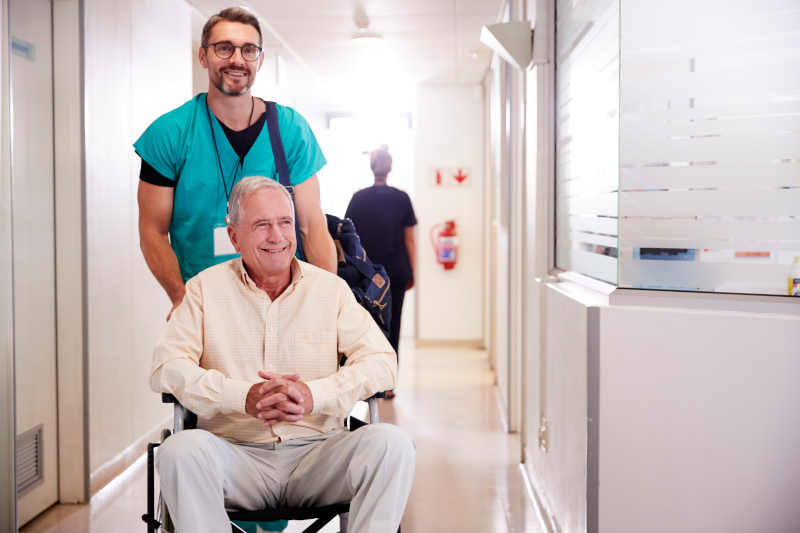Anybody’s life can be completely upended by a serious sickness, injury, or other health incident. So it can be easy to think of a loved one being released from the hospital as the point at which everything returns to normal. Sadly, this is frequently not the case. The month or months following a hospital discharge reflect a high-risk period with frequent hospital visits. Seniors returning from the hospital frequently need assistance, including non-medical in-home care.
Unfortunately, a lot of Americans downplay the difficulties and risks associated with leaving the hospital. As a result, the in-home care team at St. Bernardine Home Care has put together this brief guide to help you or a loved one close to you decide whether or not post-hospital discharge care is the best choice.
Why is At-Home Care So Vital Following Hospital Discharge?
When you and your loved one leave the hospital, your recovery from illness or injury doesn’t end. Any medical condition that necessitates a hospital stay will probably require weeks or even months to recuperate completely. Following the advice of the doctor and nurses will ensure that your loved one recovers in a healthy way.
The truth is that too many Americans ignore the hazards associated with hospital visits and take recovery for granted. You might be startled to learn that 18% of Medicare-covered hospital stays are followed by a readmission within 30 days. Readmission might arise as a result of a recurring condition or a secondary, connected condition. For instance, a lot of patients feel weak and exhausted after a hospital visit, which raises the risk of a broken bone from a fall at home.
It goes without saying that your loved one doesn’t intend to return soon after leaving the hospital. Providing them with the household assistance they require is one of the best strategies to lower their risk of readmission. After being released from the hospital, in-home care makes sure that your loved one gets the precise assistance they require to improve their chances of making a full recovery. Numerous approaches to care can be used, such as daily visits, weekly check-ins, and support and supervision available around-the-clock.
In-home care: Medical vs. Non-Medical
It’s crucial to determine whether a loved one needs non-medical care or medical care before deciding whether they require in-home care following hospital discharge. This is a crucial distinction because some in-home care requirements can only be met by qualified medical personnel. You should consult your loved one’s doctor to identify the best type of care for them.
Options for Comprehensive Home Care
We are pleased to provide a hospital discharge in-home care service at St. Bernardine Home Care. Anyone leaving the hospital and coming home can take advantage of this program’s non-medical in-home care. Our caregivers support clients as they recover by providing medicine reminders, assisting clients with physical therapy tasks, and lending a helping hand around the house to make life easier.
Contact us right away if you’re interested in our kind home care services for you or a loved one.
